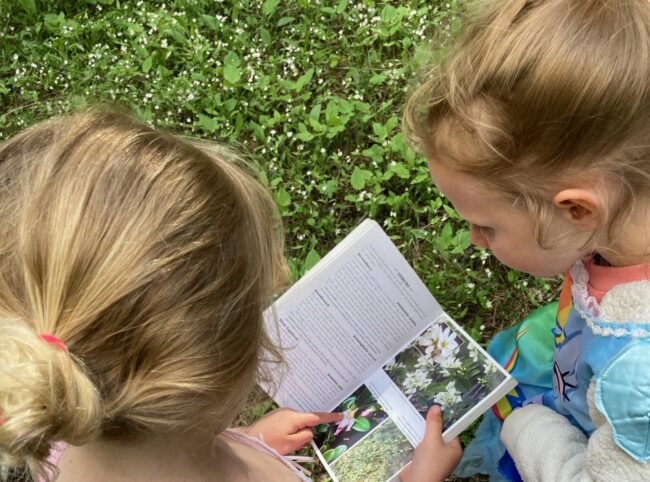by Cari Kimball
 As Montana enters something resembling spring, I’m feeling energized by the lengthening daylight hours and looking forward to those first glimpses of phlox and yellow bells that are bound to start popping up soon. Speaking of hope and renewal, I am also continually inspired by the dedication and passion of our community. I’m so grateful for each and every one of you who contributes to our mission and shares our immense love for Montana.
As Montana enters something resembling spring, I’m feeling energized by the lengthening daylight hours and looking forward to those first glimpses of phlox and yellow bells that are bound to start popping up soon. Speaking of hope and renewal, I am also continually inspired by the dedication and passion of our community. I’m so grateful for each and every one of you who contributes to our mission and shares our immense love for Montana.
Reflecting on the past few months, I see how the morale-boosting effects of our 2023 wins spur us onward, especially as we look forward to some important Supreme Court arguments. The hearings this spring will serve as waypoints in years-long campaigns to protect the Smith River and a life-sustaining climate. They are reminders that MEIC has averted hundreds of millions of tons of greenhouse gas emissions, pumped the brakes on destructive mining projects, and advocated for policies that reduced toxic air and water pollution – not with one-off efforts, but through the cumulative impact of many people giving their time and talent to the cause. Montana’s air and water are cleaner today because of the brilliance and dedication of MEIC’s community of supporters (and our board and staff!).
However, our work is far from over. Montana’s early 2024 snowpack levels were at record-breaking lows. Maybe you share my trepidation about what “smoke season” will bring; I worry about the mental and respiratory health of our community if our options are to stay indoors or breathe unhealthy air. My anticipatory joy for yellowbell sightings bumps up against my anticipatory anxiety that abnormal warming will cause phenological mismatch for our pollinators and plants. What is a Montana spring without kiddos bounding through wildflowers and thriving landscapes? Our ponderosas drought- and heat-stressed into oblivion? My heart aches to imagine it.
Perhaps you’ve heard about (and plan to join!) MEIC’s Generation Dread book discussion gatherings this spring. I hope that, like me, you’re finding the book to be validating. Author Britt Wray notes that our grief and frustration in the face of climate change are reasonable emotional responses.
“There is nothing pathological about this pain. It is the unavoidable symptom of a very sick society… but it is precisely when we turn towards tough feelings… that we unlock our capacity for strength and resolve to act,” Wray writes.
I’ve seen again and again, in the face of tough odds and emotions, your willingness to turn toward one another and toward action for a more clean and healthful Montana. Whether through speaking up at hearings, submitting comments online, donating to our cause, or simply sharing our story with your friends, family, and colleagues, you play a vital role in advancing our mission. Together, we have the power to make a difference.
So if you’ve been feeling dismay while reading the latest coverage of our warming planet, please also be heartened to know, as Britt Wray says, “Our distress is, at its heart, a sign of our connection to and love for this world.” By tapping into that sense of shared humanity and empathy, we can find the resilience desperately needed to bring about just solutions to the climate crisis. Your steadfast support and resilience will be the engines powering our work for a brighter, more livable Montana.
Thank you for your heartfelt commitment to our cause, and thank you for being part of our community.
This article was published in the March 2024 issue of Down To Earth.

